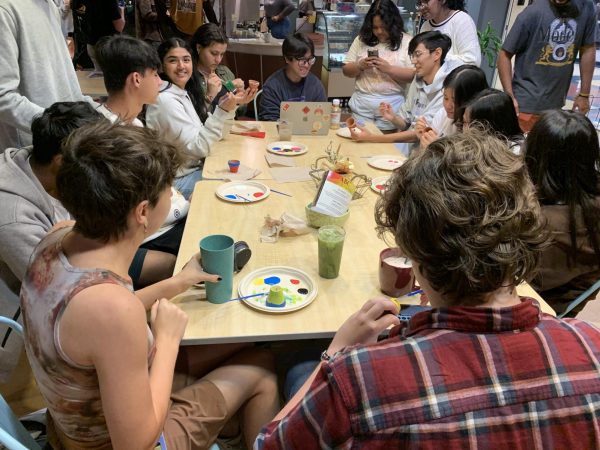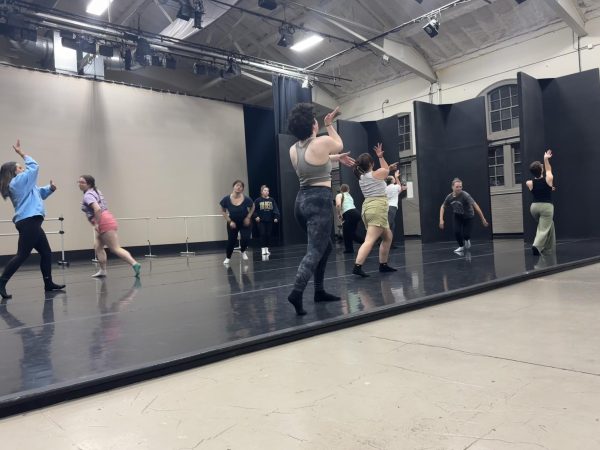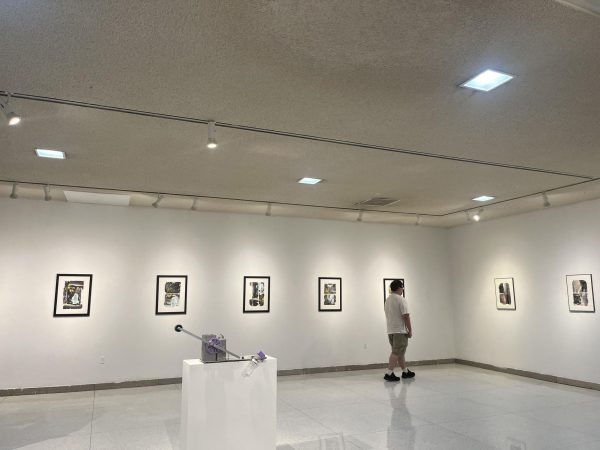Disney’s “Onward” proves another instant Disney classic
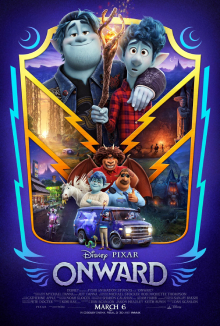
Two brothers, one mother, a deceased father — the quest of a lifetime.
Despite my house’s terrible WiFi that made watching Disney+ without buffering impossible, during this pandemic my mom and I decided to download the app for one day to watch Disney’s newest movie “Onward,” since we were no longer able to go to the theaters to watch. As a huge Disney and fantasy fan, I had been excited for this movie ever since I saw the first trailer. I was not disappointed.
Of course having the two main characters, Ian and Barley Lightfoot, be voiced by Tom Holland and Chris Pratt, I would’ve been interested anyway, but the movie proved to have much more excitement to it than just that. From the very beginning, “Onward” had a storyline that hooked me, and despite the constant buffering of Disney+, I could barely take my eyes off of the screen.
The movie opens by talking about how magic used to be everywhere in the land, but then new technologies were invented, like lightbulbs, and due to the new ease that the world provided, the need for magic faded, along with magic itself.
While this description is taking place, the scene moves from place to place providing new and fantastical scenery from the clouds to the blue people who are revealed to be elves, to the unicorns that roam the skies and the houses that are in the shape of mushrooms. My inner fantasy mind exploded.
Zero in on Ian and Barley, two elven brothers. Ian is too young to remember his deceased father at all, and Barley only has a few memories of him. Ian is shown to be scared of everything, and Barley is a “total screwup.”
The movie fully begins on Ian’s 16th birthday when his mom brings out a gift from the boys’ father: a wizard’s staff that allows them to bring back their father for one whole day.
It is later revealed that Ian is the one with the magic in him and the one able to control the staff and make the spell work, but he, by mistake, only brings back the bottom half of his dad. The rest of the movie is spent by showing the two boys on a quest to find the phoenix gem that will make the staff work, after the original gem is broken in the first spell, and to bring back their dad who neither of them really remembers.
Along the way, the boys accidentally recruit help from characters like their mom’s centaur boyfriend and the manticore who was the original owner of the map that would lead them to the gem, which burns up in a fire toward the beginning of the movie. But the main focus is on Ian and Barley and the love that exists between them.
Now, if you’re like me, you know that one of the main plot points of any Disney film is that there is a boy and a girl who fall in love by the end, and most of the time, Disney films in the fantasy genre feature the dashing prince who has to save the princess, who, for some reason, can never save herself. And while there is nothing like that in “Onward,” the film still shapes up to easily become the next Disney classic.
Like most other Disney movies, “Onward” does have a focus on love, but similar to other films produced by Disney in the past, “Onward” proves that love comes in many different forms, not just romantic. The film shows that there is also friendly and familial love. And while “Onward” is not the first Disney movie to focus on family love, it does it in it’s own unique way.
There were a few moments along the way where I thought that the movie was going to conclude in a very predictable way, similar to other fantasy Disney movies. But although there were some predictable moments, they ended up being few and far between.
The most memorable moments for me were not the funny, quippy moments, but the moments between the brothers. The biggest moment that had me close to tears was when Ian realized while he never got to meet his dad, he did have a father figure in his life: Barley. This realization was after the brothers had a fight where Ian called Barley a screw-up after the quest brought them back to the school, rather than the mountains where they had originally thought the phoenix gem was. It was also followed by the last big climax moment of the movie where Barley finds the gem and unleashes the curse that turns the school into a large stone dragon.
This then brings me to my next favorite part, where the boys’ mom appears, riding on the aforementioned Manticore, and together the two women fight the stone dragon while trying to give the boys enough time to bring back their dad. While Ian ends up defeating the stone dragon with his newfound magic and not actually getting to meet his dad in person, he leaves Barley to say hello to him for him, and let’s Barley finally get to say his goodbye.
“Onward” brings in so many aspects of real life that are important not just for kids to know, but for anyone to know. Grief is one of the biggest parts of this, giving what could very easily be a real-life example of losing a parent or loved one to sickness, and not knowing what to do in those final moments.
Barley describes his last moments with his dad as seeing his dad hooked up to a lot of tubes and wires, a scary sight for a young boy. He tells Ian that he never got to say goodbye because in the last moment when he was told to go in to see his father, he was scared and could not do it. He does not tell Ian this until closer to the end of the movie, revealing that he kept that memory from him for most of their lives. Which is why, when in the end Ian leaves and lets Barley get his goodbye, it is one of the most beautiful moments in the movie.
Another big concept shown in the movie is the idea of believing in yourself. Like I mentioned before, Ian spends the length of the movie being afraid of anything to do with social interaction along with things like heights or plenty of other things along the way of the quest. But many of the spells Ian finds himself doing only work if he believes in himself, as Barley constantly tells him.
There is another scene in the movie where Ian has to make an invisible bridge to get across a canyon and let down a drawbridge on the other side. The only way for the bridge to form is if Ian “believes with every step.” While he manages to get his invisible bridge all the way across the canyon, he does so thinking he had a rope tied to him with holding onto the other end. About halfway across the rope falls off, without Ian knowing until he reaches the end, and almost falls into the canyon. Ian later yells at Barley for letting that happen, saying he needed the rope. Barley’s only response is, “did you?”
But more than anything, the biggest concept in the movie is love, specifically between the brothers. After the movie reaches its climax and the fight is over and the dad disappears, Barley helps Ian to his feet and tells him what his dad said. But before he can fully tell him, Ian basically tells him that anything that Ian grew up to be was because of Barley.
“I may never have had a father,” Ian says. “But I did have you.”
The movie ends with the boys returning home and Ian’s social awkwardness fading away along with all of his other fears, showing the two boys’ relationship being stronger than ever.
“Onward” is a movie focusing on loss, growing up and most importantly familial love. And while there were a few predictable moments along the way, it turned out to be one of the most beautiful stories I’ve seen from Disney in a very long time.
Love is love. It does not always have to be romantic. Sometimes the best love is the love between family or the love between brothers.

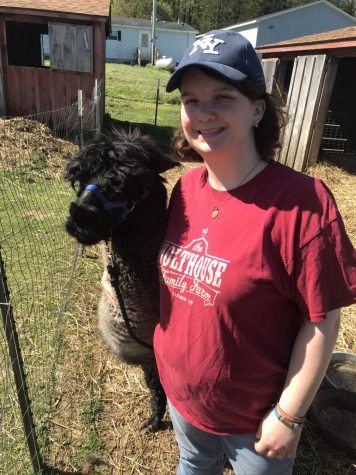
Sara Holthouse is a senior from Panama, NY. This is her third year/final semester on staff, where she has previously served as news editor for the past...



